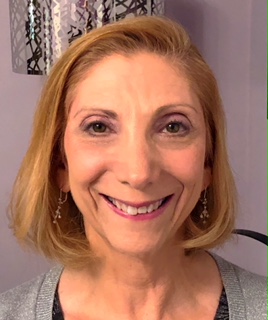 The International Neuropsychological Society is approved by the American Psychological Association to sponsor continuing education for psychologists. The International Neuropsychological Society maintains responsibility for this program and its content. The International Neuropsychological Society, Inc. is recognized by the New York State Education Department’s State Board for Psychology as an approved provider of continuing education for licensed psychologists #PSY-0154.
The International Neuropsychological Society is approved by the American Psychological Association to sponsor continuing education for psychologists. The International Neuropsychological Society maintains responsibility for this program and its content. The International Neuropsychological Society, Inc. is recognized by the New York State Education Department’s State Board for Psychology as an approved provider of continuing education for licensed psychologists #PSY-0154.Abstract
This workshop begins by defining bystanders and upstanders. Attention is then paid to the rationale for being an upstander. Specific strategies for being an upstander are then delineated. In the live webinar, participants will have an opportunity for experiential practice in being an upstander through the use of vignettes.
Learning Objectives
- Articulate the reasons for being an upstander
- Delineate strategies for being an upstander
- Be able to use microinterventions to disarm and neutralized microaggressions
Course Information
| Target Audience | Intermediate (requires understanding of or experience with interdisciplinary environment, regulatory limitations within the rehabilitation industry, and the role of psychologists on interdisciplinary teams) |
| Live Webinar (1.5 Hours) | 1.5 hours are available for those who attend the live webinar on June 14, 2024 After you attend the live webinar, you will be emailed a link to complete the CE evaluation and obtain your certificate. You must attend the entire session to receive credit; partial credit will not be awarded. |
| On-demand Webinar (1 Hour) |
1.0 hour will be available for the on-demand webinar Scroll to the bottom of the page to watch the webinar and enroll in the course |
| Cost & Availability |
No charge; open to all INS members and professional psychologists |
| Resources |
Instructor
 Nadine J. Kaslow, PhD, ABPP is Professor; Vice Chair for Faculty Development, Diversity, Equity, and Inclusion; Director of the Atlanta Trauma Alliance; and Director of Postdoctoral Residency Training at Emory University School of Medicine Department of Psychiatry and Behavioral Sciences; and Chief Psychologist and Director of Wellbeing, Resilience, and Flourishing at Emory@Grady Health System. In 2012, she received a Doctorate of Humane Letters from Pepperdine University. The 2014 President of the American Psychological Association (APA), Dr. Kaslow is Past President of APA’s Divisions of Clinical Psychology (12), Psychologists in Public Service (18), Family Psychology (43), and Psychotherapy (29), as well as the American Board of Clinical Psychology and the American Board of Professional Psychology. She is the Former Chair and Board Member Emeritus of the Association of Psychology Postdoctoral and Internship Centers (APPIC). Former Editor of the Journal of Family Psychology, Dr. Kaslow was a Primary Care Public Policy Fellow through the United States Public Health Service, a fellow of the Executive Leadership in Academic Medicine Program, and a Fellow of the Woodruff Leadership Academy.
Nadine J. Kaslow, PhD, ABPP is Professor; Vice Chair for Faculty Development, Diversity, Equity, and Inclusion; Director of the Atlanta Trauma Alliance; and Director of Postdoctoral Residency Training at Emory University School of Medicine Department of Psychiatry and Behavioral Sciences; and Chief Psychologist and Director of Wellbeing, Resilience, and Flourishing at Emory@Grady Health System. In 2012, she received a Doctorate of Humane Letters from Pepperdine University. The 2014 President of the American Psychological Association (APA), Dr. Kaslow is Past President of APA’s Divisions of Clinical Psychology (12), Psychologists in Public Service (18), Family Psychology (43), and Psychotherapy (29), as well as the American Board of Clinical Psychology and the American Board of Professional Psychology. She is the Former Chair and Board Member Emeritus of the Association of Psychology Postdoctoral and Internship Centers (APPIC). Former Editor of the Journal of Family Psychology, Dr. Kaslow was a Primary Care Public Policy Fellow through the United States Public Health Service, a fellow of the Executive Leadership in Academic Medicine Program, and a Fellow of the Woodruff Leadership Academy.
She has received numerous awards including: APA’s Distinguished Contributions for Education and Training Award, an APA Presidential Citation for assisting displaced interns and postdoctoral fellows in the aftermath of Hurricane Katrina, APPIC’s Award for Excellence in Postdoctoral Training, a Heiser Award for her legislative advocacy efforts, Elizabeth Hurlock Beckman Award for inspiring her junior colleagues to develop effective programs in the community, Grady Health Foundation’s Inspiring Mentor Award, Emory University’s Thomas Jefferson Award, Distinguished Member of Psi Chi, Georgia Women’s Legislative Caucus Nikki J. Randall Servant Leadership Award, Emory University School of Medicine Lifetime Service and Leadership Award, Emory’s Women of Excellence Award for Distinguished Leadership, Emory@Grady Career Impact Award, and the Atlanta Magazine’s Women Making an Impact Award.
The recipient of multiple federal and foundation grants, she has published over 370 articles and seven books including Essential psychotherapies 4th edition, Supporting trainees with competence problems: A practical guide for psychology trainers, the Oxford Handbook of Education and Training in Professional Psychology, and Advancing the science of suicidal behavior. A member of Rosalynn Carter’s Mental Health Advisory Board, she is a nationally recognized expert in diversity, equity, and inclusion; suicide and family violence; psychology education and training and clinical supervision; patient- and family- centered care; leadership development; and global mental health. Dr. Kaslow is the psychologist for the Atlanta Ballet and a frequent media guest.
Disclosures
Dr. Kaslow has no relevant financial or non-financial relationships to disclose.
References
- Hackworth, J. M., Kotagal, M., Bignall, R., Unaka, N., Matheny Antommaria, A.H. (2021). Microaggressions: Privileged observers’ duty to act and what they can do. Pediatrics, 14(6), e2021052758. https://doi.org/10.1542/peds.2021-052758
- Jennings, L., Zhao, K., Faulkner, N., & Smith, L. (2024). Mapping bystander intervention to workplace inclusion: A scoping review. Human Resource Management Review, 32(2). https://doi.org/10.1016/j.hrmr.2024.101017
- Philpot, R., Liebst, L. S., Levine, M., Bernasco, W., & Lindegaard, M. R. (2020). Would I be helped? Cross-national CCTV footage shows that intervention is the norm in public conflicts. American Psychologist, 75(1), 66–75. https://doi.org/10.1037/amp0000469
- Puigvert, L., Soler-Gallart, M., & Vidu, A. (2022). From bystanders to upstanders: Supporters and key informants for victims of gender violence. International Journal of Environmental Research and Public Health, 19(14), 8521. https://doi.org/10.3390/ijerph19148521
- Rubenstein, J., Rahiem, S., Nelapati, S. S., Arevalo Soriano, T., & Tatem. A. (2023). Discrimination 911: A novel response framework to teach bystanders to become upstanders when facing microaggressions. Academic Medicine, 98 (7), 800-804. https://doi.org/10.1097/ACM. 0000000000005171
